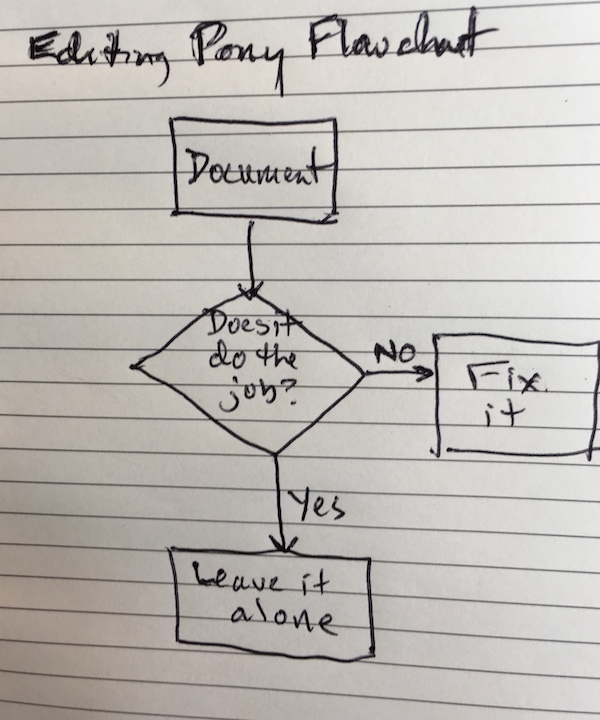Proposals, “what went wrong” documents, even status updates. These and lots more come through your inbox, written by others and given to you to pass along to management, decision makers, or others. When I get these, I always proofread before sending along. After all, my name will be on it even though I’m not the author.
My team are all good writers, but every document can be improved. Here are some edits that may occur to you as you review.

Only one of those four is helpful, though. Which one? I’ll give you a few minutes to think it through.
If you didn’t say the last one, then we can’t be friends anymore.
What do the first three have in common that make them not just unhelpful but actually counterproductive? In each, you’ve acknowledged that the communication does its job, but your ego has declared, “That’s not the way I would say it.” You now have a choice: Approve the document with minor edits, or rewrite the document the way you would have written it?
If you’re unsure of the right choice, here’s a handy flowchart for you:

The objective of business communication is to communicate business things. If the document does its job and is not grossly offensive in how it presents itself, then leave it alone. Make minor edits–clarify where necessary, fix usage and grammar, spell-check, etc.–but do not rewrite.
Rewriting a document that is already competently written accomplishes only negative things:
- You waste your own time.
- You make the author feel their time was wasted.
- You make the author feel their voice is unheard and their work is unappreciated.
- You confuse people about who now “owns” the document. It’s no longer the original author’s, but it’s not yours either. Who responds to questions?
- You set yourself up to get crap that needs to be rewritten in the future, because who wants to put a ton of work into something that’s just going to get reworked anyway?
Certainly, some situations may require rewrites. A draft written by an engineer that needs to be reformed in the corporate voice for public use, for example. This is where professional communicators need to step in and command the output.
You all know me by now as someone who cares deeply about the written word. Much of the time in business, however, your time is better spent elsewhere than rewriting a competent document into a (marginally) more competent document.
The Editing Pony
 The Editing Pony is a blog series about good business writing. I’ll post periodic tips and gladly critique and rewrite emails or one-pagers for you in a blog post. Contact me to learn more.
The Editing Pony is a blog series about good business writing. I’ll post periodic tips and gladly critique and rewrite emails or one-pagers for you in a blog post. Contact me to learn more.
Why a pony? A writer friend said she hadn’t edited in ages, but she was “getting back up on that pony.” Thus, the Editing Pony was conceived, to trample your words with ruthless, plush cuteness.